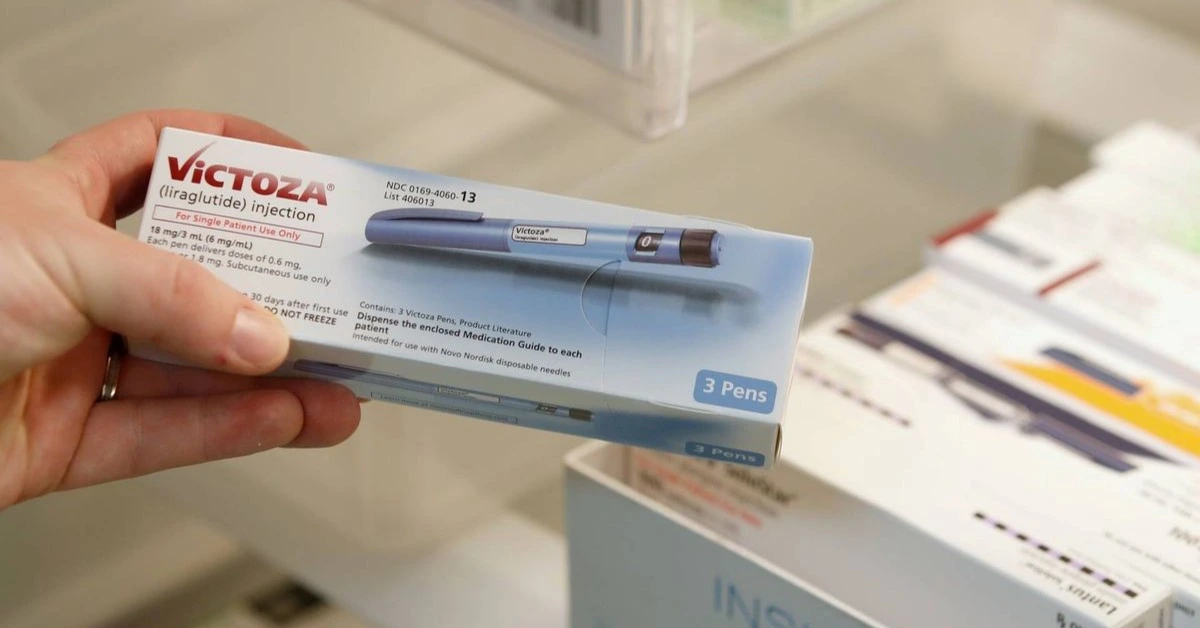
USA – Novo Nordisk has intensified its push to prevent compounding pharmacies in the U.S. from producing unauthorized versions of its GLP-1 agonist drugs.
The company recently filed a Citizen’s Petition with the FDA targeting liraglutide, an older, once-daily injectable marketed as Victoza and Xultophy for diabetes and Saxenda for obesity.
While sales of Victoza are declining as patients transition to newer, once-weekly GLP-1 drugs like Ozempic and Wegovy (both based on semaglutide), the once-daily product remains profitable, generating over US $550 million in revenue during the first nine months of 2024.
Novo Nordisk’s petition challenges the inclusion of liraglutide on the FDA’s list of bulk substances deemed to have a “clinical need” for compounding.
The Outsourcing Facilities Association (OFA), which represents the compounding pharmacy industry, has nominated liraglutide for this list, citing marketplace shortages.
However, Novo argues that the presence of authorized generic versions of liraglutide, such as Teva’s, eliminates the necessity for compounding.
The company further asserts that manufacturing liraglutide is highly complex, and even minor alterations in the production process can compromise the drug’s chemical and physical stability, leading to safety concerns.
Novo points to the risk of fibril formation in compounded liraglutide products, which could not only reduce the drug’s potency but also increase immunogenicity risks, posing significant threats to patient health.
This petition echoes a similar request by Novo last year, aimed at restricting the compounding of semaglutide, the active ingredient in Ozempic and Wegovy.
The company argued that the intricate nature of these medications makes them unsuitable for compounding, raising safety concerns.
Although that effort was unsuccessful, Novo continues to advocate for tighter regulations on compounded versions of its drugs.
Novo’s stance comes amid similar actions by Eli Lilly, which is taking legal steps to halt the compounding of tirzepatide, marketed as Mounjaro for diabetes and Zepbound for obesity.
Lilly has joined the FDA in defending against a lawsuit filed by the OFA and FarmaKeio Custom Compounding, which challenges the removal of tirzepatide from the FDA shortages list.
Pharmacies and outsourcing facilities must cease production of compounded tirzepatide by mid-March 2025, a move Lilly supports to prevent the proliferation of unauthorized and potentially unsafe versions of its drug.
Lilly has also raised concerns about counterfeit drugs infiltrating the market. According to Patrik Jonsson, president of Lilly USA, some illicit versions originate from countries like China and India, where they are not legally approved, creating challenges for patients in verifying legitimate products.
In response to rising global demand for obesity and diabetes treatments like Wegovy and Ozempic, Novo Nordisk is ramping up its manufacturing capabilities.
In December 2024, the company announced a significant investment of DKK 2.9 billion (approximately US $409 million) in a state-of-the-art quality control laboratory in Hillerød, Denmark to boost obesity drugs supply.
The demand for compounded alternatives has grown amid intermittent shortages of semaglutide-based drugs and their high costs—often exceeding US $1,000 per month without insurance.
Patients seeking more affordable options have turned to compounded versions, intensifying the debate over their safety and regulatory oversight.
XRP HEALTHCARE L.L.C | License Number: 2312867.01 | Dubai | © Copyright 2025 | All Rights Reserved